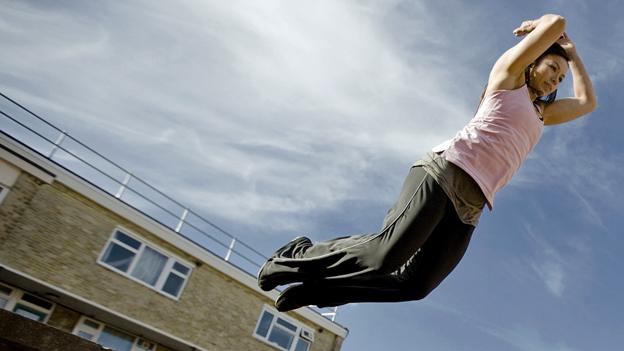Parkour athletes say the sport boosts mental health
- Published
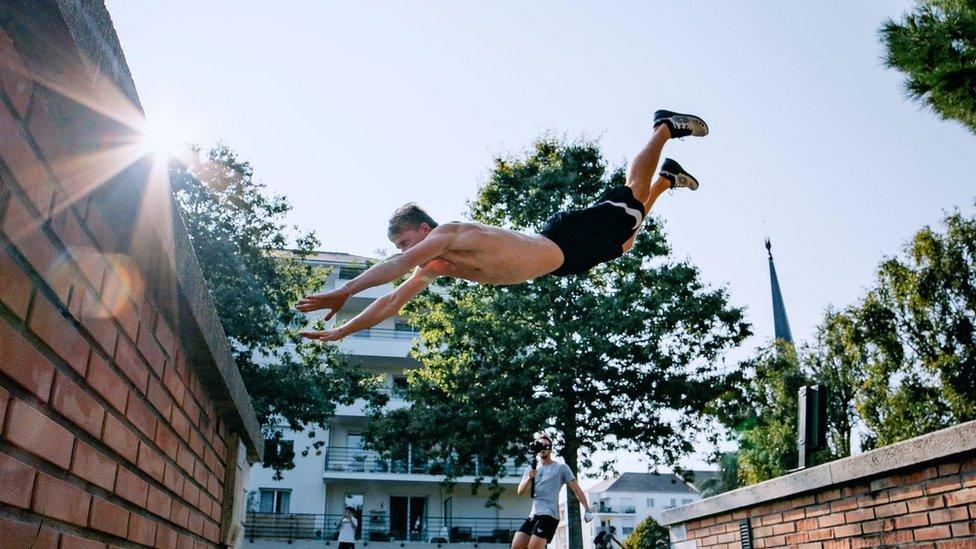
Parkour originated in France and became popularised in the late 1980s
Parkour athletes say the daring discipline has helped to boost their mental health by facing fears, managing setbacks and building confidence.
The sport sees participants, called traceurs, attempt to get from point A to point B in the fastest way possible.
It is done without equipment and often involves acrobatic flips and jumps.
Professional traceur, Danny Pierce, from Bristol, said: "You realise your potential is so much more than you previously thought."
Though it often carries a reputation of danger and disruption- fuelled by videos of extreme choreography at nauseating heights - some say the sport unlocks feelings of "hope" and "mindfulness".
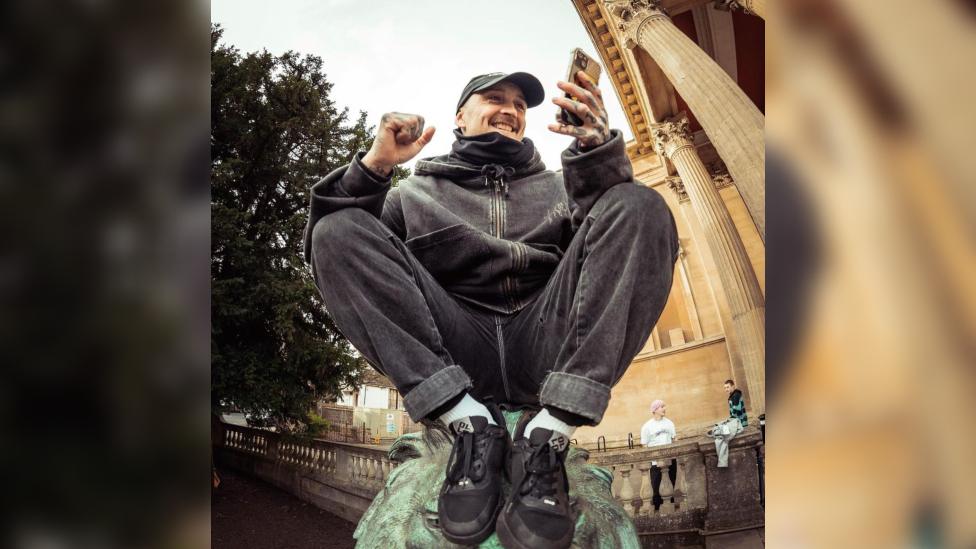
Mr Pierce first began exploring the sport aged 17, and said the passion had always existed in him "but without the name parkour"
Mr Pierce, 33, is a parkour practitioner and coach with an online following of almost 40,000 people.
"I was always interested in movement from a young age," he said.
"Always climbing and finding a thrill from doing something I knew was scary and dangerous, but still within my ability."
Despite its controversy, parkour was officially recognised as a sport in the UK in 2017, by all five of the UK's sports bodies.
One explanation for the sport's growing popularity is its accessibility to athletes of all capabilities.
As Mr Pierce attests, the aim of the discipline is not to be competitive, but to progress at a personal level.
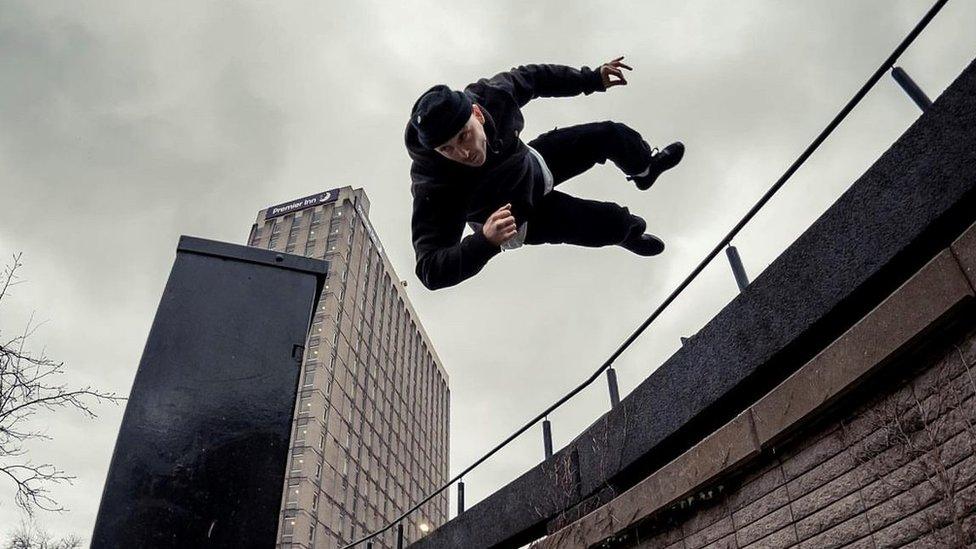
Mr Pierce says he would like to see the future of the sport grow, and for there to be more coaching available
"I love the idea of making myself better at moving and the challenge and fun that comes with pushing yourself. It's a massive confidence builder," he said.
Charlotte Boenigk is the CEO and founder of Esprit Concrete: Free Your Instinct, an organisation in Bristol that delivers parkour for mental health.
The sessions focus on supporting the development of psychological strength and resilience by "bringing the benefits of adventure therapy into the urban environment".
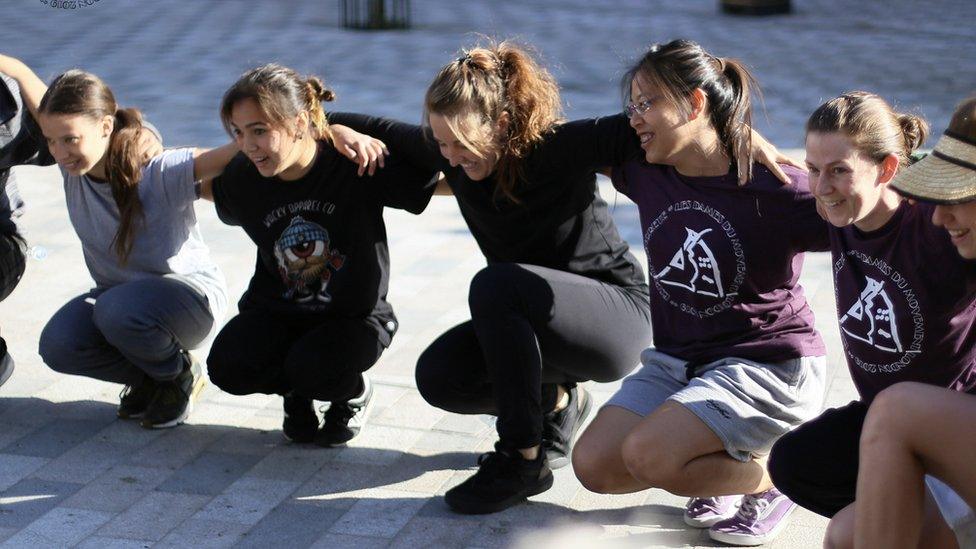
Ms Boenigk (r) says there is a misconception that parkour is "a high-risk adrenaline sport"
"Parkour allows the person to move more mindfully, connecting their mind, body and environment while reducing feelings of anxiety and overwhelm," Ms Boenigk said.
"Participants also describe how the feelings of success and achievement triggered in the sessions allow them to gain a sense of hope, and see that there are positive solutions to challenges," she added.
Ms Boenigk said the discipline also has the potential to uncover repressed feelings of trauma, anxiety or fear, which can then be managed using "positive coping strategies".
Emma Brech, CEO of mental health support charity, Bristol Mind, says she believes parkour can be used not as an 'escape', but a way of facing your fears head on.

Ms Brech says parkour is an "interesting and creative way of taking ownership of your environment"
"In therapy, we talk a lot about 'turning into difficulty' rather than trying to deny it, avoid it or suppress it," she said.
"We're constantly having to overcome obstacles in life, so if we've got a physical outlet that lets us practice those skills in a structured and exciting way, it enables us to do things like manage risks, problem solve, and overcome barriers in our own self-concept by showing us what we're capable of.
"It's about listening to our body, relating to it and learning from it, rather than pushing it to extremes."

Follow BBC Bristol on Facebook, external, X, external and Instagram, external. Send your story ideas to us on email, external or via WhatsApp on 0800 313 4630, external.
Related topics
- Published29 December 2023
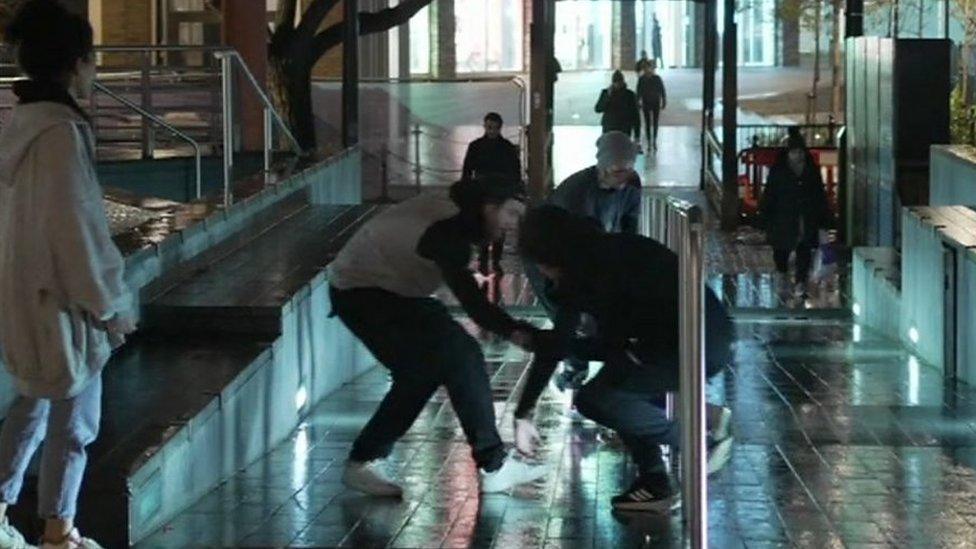
- Published21 August 2019

- Published18 April 2021
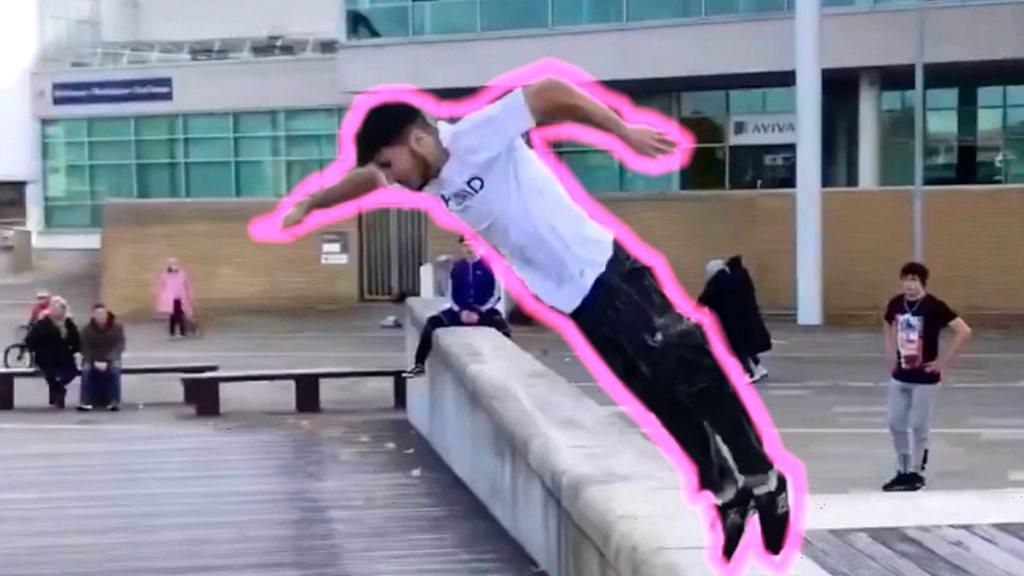
- Published30 April 2015
